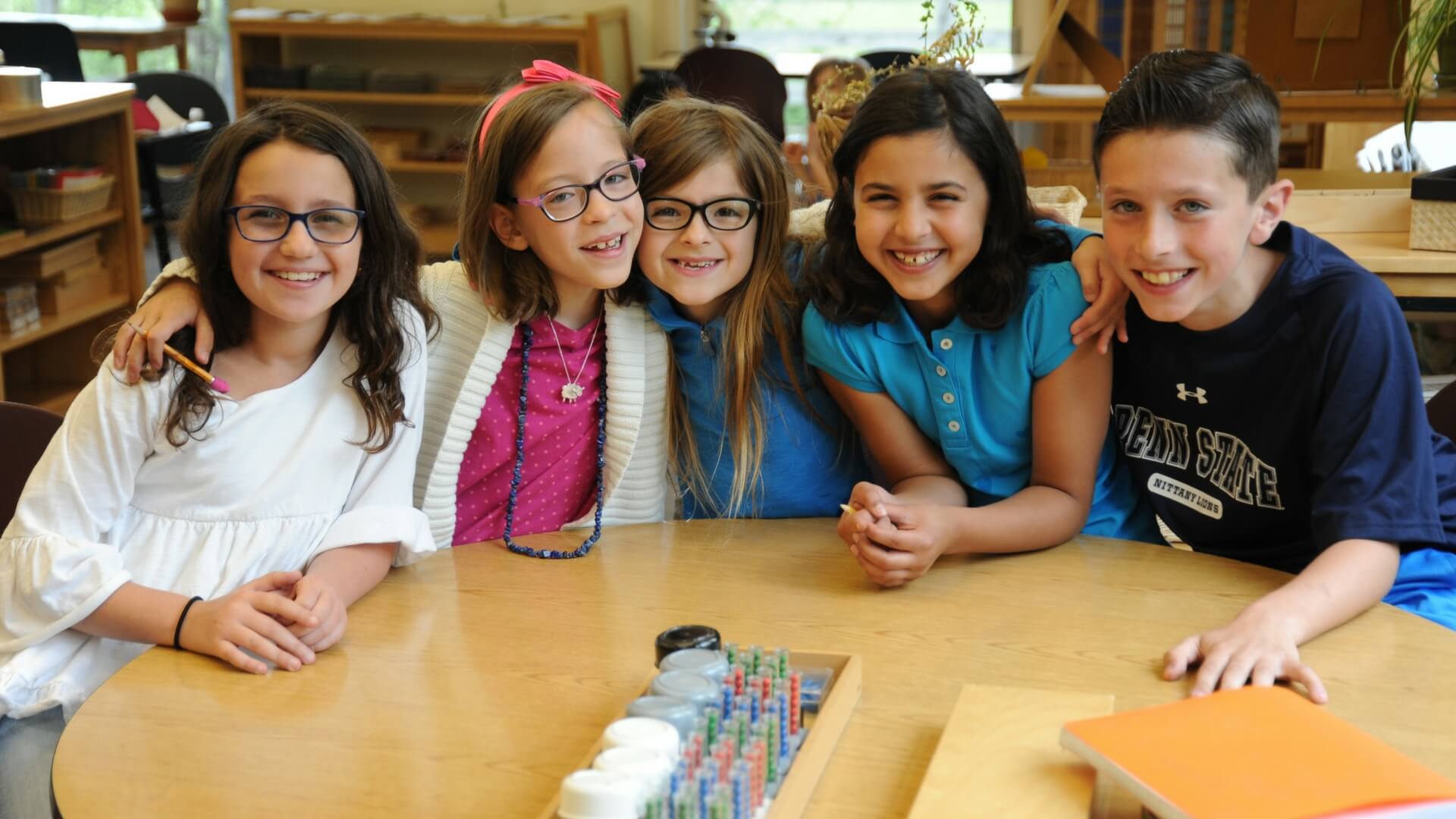Montessori describes the love a parent feels for their child, the pure, selfless dedication that allows us to give our children our own food even when we are hungry, to protect the young even if it means putting ourselves at risk. And we know, in those “Who would you save?” scenarios, that we would put our children first, that we do love them that purely.
But sometimes, we don’t bring out our best side when we are with the children. Sometimes, all the pressures of being an adult and a member of society overwhelm us, and sometimes, in their intimacy with us, in their access to us, in the ways their vulnerability reminds us of our own, we unload those pressures into our children. Sometimes we lose our tempers. Sometimes we want just a minute to ourselves.
And here’s Dr. Montessori, reminding us that we are instinctually drawn to put them first, to protect them, to sacrifice for them. Here’s Dr. Montessori, reminding us that “nearness to them brings out our best side.”
Thanks, Maria. Like I wasn’t feeling crummy enough already.
Listen. You’re not going to read enough blogs or journal enough hours or do enough yoga or breathe in and out enough times to elevate yourself to some saintly state of eternal patience. And if you think you can, I’d advise you to go read up on some of the saints. They lose their temper sometimes, too. We all do. We’re human. Even Montessori was human.
Listen. You’re not going to do this perfectly. The life of the child is a joyful path to their own perfection. The life of the adult holds competition and toil and the “daily round is often more depressing.” So, there is is. But nonetheless, being near to the children can still bring out our best side. On some days, it’s because being with spirits who are still joyfully constructing themselves, who embrace their own work with eagerness and delight, gives us a much needed distraction from our own stresses. In being with the children, we can remind ourselves, in practical, hands-on experiences, the same way all lessons are best learned, of what we value, of their promise. We can delight in them.
On some days, it’s because being with spirits who challenge us, when we lose our tempers and make mistakes, when we doubt our own parenting and feel overwhelmed by it, gives us the opportunity to do so with transparency, to model for children what we want them to know about adulthood: that it’s not always easy, that sometimes things go wrong, and that, when they do, we take responsibility for that and try to be better the next day.
If you hold yourself to a standard of perfection in your teaching or your parenting, you won’t actually end up modeling that perfection for the children. Instead, you’ll model what it looks like to always be afraid of getting it wrong. You’ll model a void of compassion. If you set as a standard an impossible state, you’ll model failing again and again, getting used to failure or, worse, covering it up with the illusion of perfect. The children know you too well.
Even the saints lose their temper sometimes. We all do. We’re human. Even Montessori was human.
Montessori reminds us that asking a young child to sit silently and listen to us for an extended time is like asking them to stand on the tip of their nose. They cannot physically do it, so setting it as an expectation is a recipe for failure for them and for us. We need to ask of children what they are capable of doing. We need to ask of ourselves what we are capable of, too.
Even the saints lose their temper sometimes. We all do. But what differentiates the truly saintly is that they don’t stop the story there. They are not known for their anger because the sum of their lives is greater than their mistakes. We will not be perfect teachers or perfect parents, but we can be loving models of self-compassion. We can demonstrate the humility that it takes to acknowledge when we’ve messed up, to take responsibility for it, not to blame our partners or our bosses or our children, and model for our children how we want them to respond when they are not their best selves.
Because the life of the child is a line joining two adult generations. The child’s life “starts from one adult and ends in another adult.” The child, in their pursuit of perfection, is still both a continuation of and a reflection of us. If we are to nurture them toward the adults they have the capacity to become, it won’t be by pretending that they’ve started from adults more perfect than we really are. Instead, we need to teach them, in practical, hands-on experiences, in the way same way all lessons are best learned, what it means to restore peace when we’ve upset it, what it means to regain trust when we’ve injured it, what it means to redeem ourselves. Not through the expectation or illusion of perfection, but modeling what to do when we are not perfect. When we find that we have not brought our best to our children, and we choose to make visible our efforts to correct that in ourselves, to name both who we hope to be and who we are in this moment, and to commit to narrowing the gap, we bring our best to children.
This post first appeared on Montessori Daoshi.


